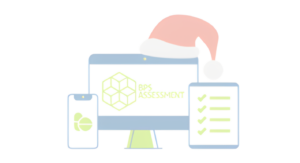We know from previous Prescribing Safety Assessment candidates that the time pressures are seen as the biggest challenge of the PSA exam.
But there’s a good reason why you’re expected to be able to answer 60 questions in 2 hours! The PSA is designed to simulate the real-life pressures of prescribing in a clinical setting. You won’t have time, as a prescriber, to look up every decision in MedicinesComplete or the BNF. You will need to be able to complete dosage calculations quickly and accurately, spot risks, and communicate effectively with patients in order to do your job.
So the most important thing to bear in mind if you’re worried about the time pressures of the PSA is that they’re in place for a reason! With that in mind, there are some steps you can take to manage your time effectively in the exam.
Ahead of time
1. Understand the exam format inside out
Different sections of the PSA are weighted differently, and each section is asking you to demonstrate a different area of prescribing competency. So you need to understand exactly what’s being asked of you in each section, as well as how many marks are at stake. You can do this by:
- Logging into your PSA platform account and reading through the official information
- Reading our blog post for a detailed breakdown of what’s in the PSA
- Completing our free PSA Prep eLearning sessions
The PSA Prep eLearning sessions have been created by a team of experts to address common challenges encountered in the exam – including time pressures – and will help you understand the exam format and what’s expected of you in each section.
2. Get familiar with the BNF
Both MedicinesComplete and the NICE BNF are available in the exam, so it’s vital that you familiarise yourself with these resources ahead of time. In particular, spend time on the ‘treatment summaries’ section of the BNF, which you’ll need to consult if you don’t know the medication required for a particular treatment, as it’s not always immediately obvious where to find particular topics (for example, opioid conversion comes under ‘palliative care’ – if you didn’t know that in advance, you could spend valuable time searching).
3. Practise… with a timer!
If you’ve not practised answering 60 question items within 120 minutes, you’ll find it more difficult to manage your time effectively on exam day.
So, once you’ve completed the official PSA practice papers, take a look at the extra practice papers available from BPS Assessment. We’ve created the only available 2 hour practice paper, marked out of 200 (just like the real exam) so that you can understand exactly where you struggle time-wise when it comes to answering 60 questions in 120 minutes.
You get unlimited attempts on our practice paper too, so you can practise as many times as you need in order to feel confident about that 2 hour countdown on the day.
On exam day
1. Consider a timing plan
Having a rough idea of how long you should be spending on each section of the exam will help you manage your time effectively.
There are 200 marks available in total over the 120 minutes of the exam. If we look at that time broken down across the 8 sections of the exam, we get:
- Section 1: Prescribing (PWS) is worth 80 marks = 48 minutes
- Section 2: Prescription Review (REV) is worth 32 marks = 19 minutes 12 seconds
- Section 3: Planning Management (MAN) is worth 16 marks = 9 minutes 36 seconds
- Section 4: Providing Information (COM) is worth 12 marks = 7 minutes 12 seconds
- Section 5: Calculation Skills (CAL) is worth 16 marks = 9 minutes 36 seconds
- Section 6: Adverse Drug Reactions (ADR) is worth 16 marks = 9 minutes 36 seconds
- Section 7: Drug Monitoring (TDM) is worth 16 marks = 9 minutes 36 seconds
- Section 8: Data Interpretation (DAT) is worth 12 marks = 7 minutes 12 seconds
You may not want to allocate every single second of the exam, however! You’ll need time to take a breath and reset every now and again, as well as a cushion of time for any unexpected challenges. This is just a starting point.
2. Breathe… you’ve got this!
Lots of Prescribing Safety Assessment candidates find the time pressure to be the biggest challenge when it comes to exam day. So you’re not alone! Just remember that the time pressures are there to simulate the real-life challenges of prescribing and to help you become a safe and accurate prescriber.
Good luck!




